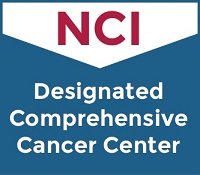CML Patient Finds Transplant Team Comforting

Eileen Diener with her children, Jenna, Matthew and Megan.
Eileen Diener was treated in the Blood and Marrow Transplant Program at the University of Maryland Marlene and Stewart Greenebaum Cancer Center. Since her successful treatment, the mother of three has entered a Master's program at the University of Maryland School of Social Work with the goal of becoming a social worker in the BMT program where she was once a patient.
In 1996, I went for a routine physical exam. I had my blood tested because I had been feeling fatigued. The routine physical turned out to be anything but routine. Blood test results showed that my white blood count was elevated, and follow up tests confirmed the diagnosis: chronic myelogenous leukemia (CML).
I was referred to a hematologist and began treatment immediately. I responded well to treatment for awhile, but then, in May, 2002, I relapsed and my condition became much worse. I was referred to the Blood and Marrow Transplant Program at the University of Maryland Marlene and Stewart Greenebaum Cancer Center (UMGCC).
Once at UMGCC, I met with Dr. Aaron Rapoport, associate professor of Medicine at the University of Maryland School of Medicine and an expert in CML. He told me that my best option was a bone marrow transplant. It was one of the most terrifying experiences of my life.
Thankfully, BMT staff was compassionate and supportive. From the very beginning, they treated me with respect and kindness. The transplant coordinator, Kathy Ruehle, went out of her way to alleviate my fears, acknowledging everything that I was thinking and feeling. This was a huge help to me in coping with my upcoming treatment.
In advance of the transplant, I went through three days of chemotherapy and radiation, which made me extremely sick. There were nights when I didn't believe I was going to make it, but the caring staff never let me down. One nurse spent an entire night talking with me.
This was a very difficult situation and to be surrounded by kind, caring people is so important. The BMT physicians and staff were compassionate and never made me feel like just a body. They treated me as a whole person.
The other day I was watching my beautiful daughter, Jenna, playing soccer. She looked at me in the bleachers and smiled. I immediately looked into the sky and said, "Thank you, God, and thank you to everyone at UMGCC. I wouldn't be sitting here today without them." They gave a daughter back to her parents, a wife back to her husband and, most important, a mother back to her children.


